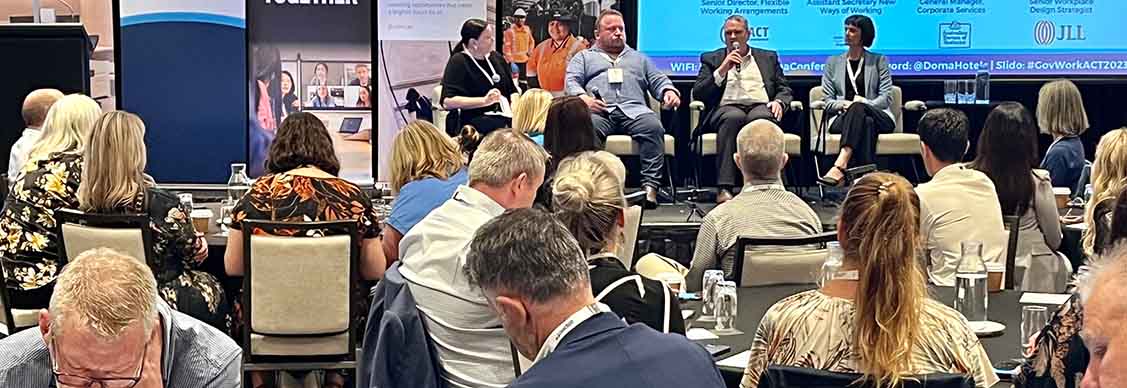The unpredictable challenges of flexible working
The hybrid work journey includes challenges that can catch leaders on the back foot
Even as remote working begins to normalise for many organisations, employers are discovering new and surprising challenges.
These include the practical concern of appointing fire wardens and first-aiders for the office, as well as the challenge of bringing around to a flexible mindset business leaders who have spent their professional lifetimes at fixed desks, and sometimes in their own offices nine-to-five.
These were matters discussed by public sector experts on the topic, “Aligning people, place and technology to optimise hybrid working,” at the recent Government Workplace and Technology Summit in Australia.
“We encourage flexibility to become a bedrock of what we do,” says Peter Nolan, senior director, flexible working arrangements, ACT Government. “Our attitude is, ‘If not, then why not?’.”
With a mission to be “the most progressive jurisdiction in the country,” the ACT government is providing staff with multiple workplace locations to help them work close to where they live or have other responsibilities.
At the same time, the department is redesigning its offices to promote culture and cohesivity.
“One of the things we’ve noticed is the reasons people come into the office are quite different to before,” Nolan says. “They come in for culture, connection, and that sociability aspect we as humans need, which is also important for building the fabric of your organisation. We see high demand for our larger living spaces such as kitchenettes, breakout rooms and collaborative spaces, so we actually need to start thinking about redesigning office environments to meet these needs.”
The onboarding challenge
While the Australian Bureau of Statistics has allowed hybrid work for a number of years, its revised policy, which allows staff to work from home up to six days in a two-week period, has resulted in daily office attendance halving pre pandemic numbers. This has thrown up unforeseen hurdles, says Lane Masterton, the department’s general manager of corporate services.
“It’s the small things you don’t think about. We have an issue at the moment around having fire wardens and first-aiders who could be working from home on any given day,” he says, drawing a chorus of knowing sounds from the audience.
Plus, the number of employees leaving their jobs within the first year has increased, with a lack of connection to workplace and people often cited as a key reason.
“Our new-starters don’t experience the same social rituals such as morning teas with the team anymore,” Masterton says. “Our onboarding experience needs to be redesigned with a focus on building connections with colleagues.”
For people who do work from the office most days, Masterton is pushing back on the tendency for colleagues to delegate office-based tasks to them, such as greeting new-starters.
Leading the leaders
Hybrid working is delivering more than just flexibility to the workplace. It is forcing a wholesale rethink about how performance is discussed and measured.
It takes good managers to move the conversation away from hours and days worked and towards outcomes and welfare. But for some, the transition to hybrid work is laying their shortcomings to bare.
For Jo Mond, assistant secretary for new ways of working at Australia’s Department of Health, supporting managers themselves as the department shifts to new ways of working has been a key focus.
“We’ve had leaders who have said, ‘There’s no way I’ll be working from home. I want a set office and that’s it’,” Mond says. “But as you work with them on the advantages and they start to see some of those benefits to their team, their resistance fades.”
“Their authentic stories of how they’ve grappled with the change are then really powerful and important to share with other leaders and colleagues who also need to move along the journey,” Mond says.
The ACT Government’s Nolan believes widespread flexible working is changing workplace dialogue for the better.
“This is the era of the mature conversation. A lot of the issues we are raising today can be resolved by taking a less adversarial and more constructive way of talking about and working through issues,” he says. “Performance agreements have traditionally been a tick-box exercise, but the dynamic has shifted significantly so that conversations involve talking to employees about their expectations, and then shifting our own managerial capabilities to create the right spaces and allow them to do perform as effectively as they can.”
